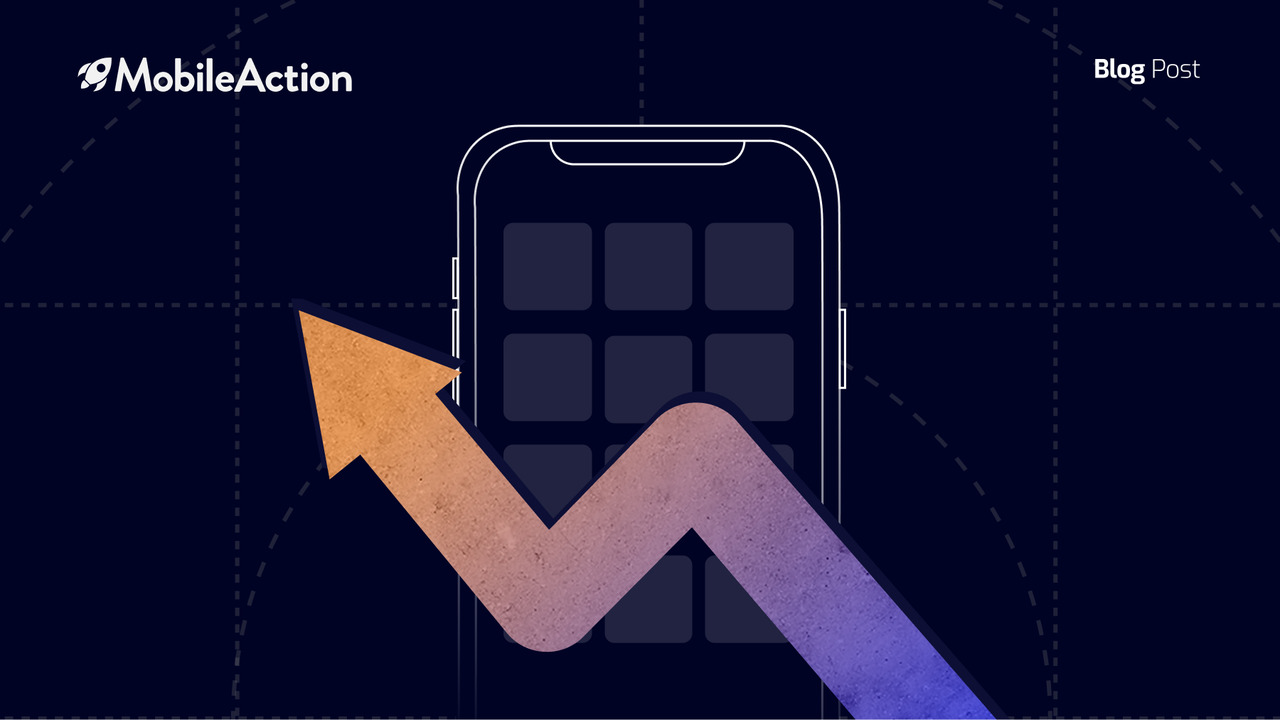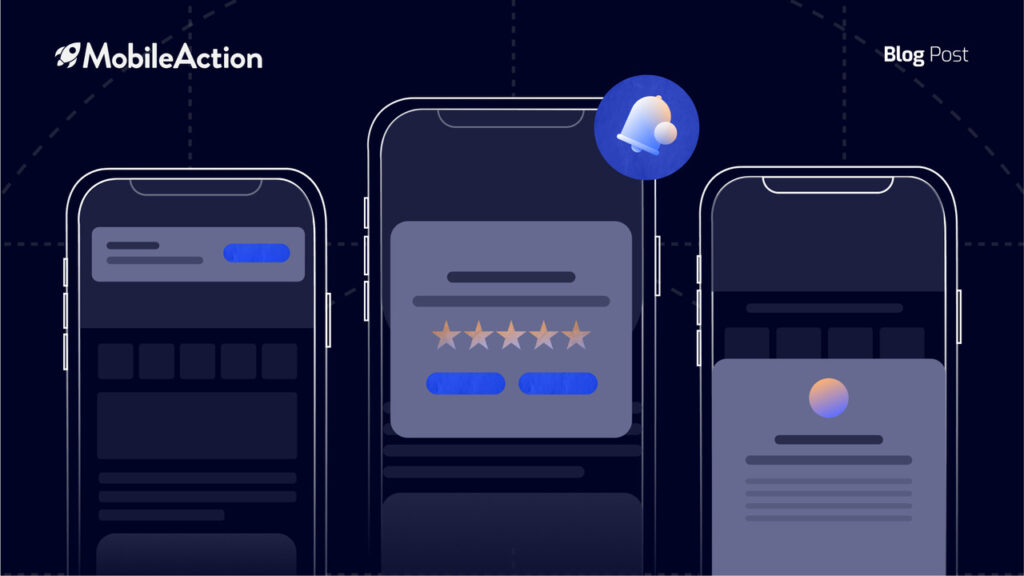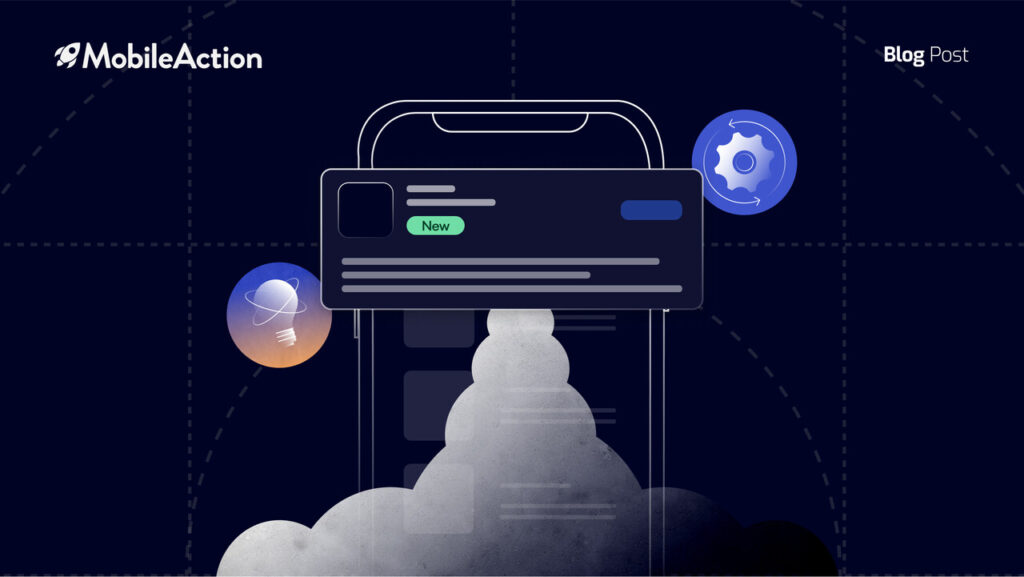Today it is evident that mobile apps have firmly established themselves in our daily lives thanks to their ability to offer convenience, entertainment, and valuable services. Even though creating a mobile app is only the first step, it is also essential to ensure that users interact with and continue to use the application. This article will examine effective tactics and advice for increasing mobile app engagement, helping you build an efficient and thriving app.
Mobile app engagement strategies are a broad concept encompassing plans and techniques to engage users with an app actively. It offers many benefits for app developers: ensuring their regular use, increasing satisfaction and loyalty. But at the same time, if your goal is to create an engaging user experience, various app features that motivate users to engage and stay connected need to be optimized: user experience, notifications, rewards, support, etc.
Why is Mobile App Engagement Important?
If you want your mobile app to succeed, you will need a high level of app engagement. Active app users are more likely to stay, make in-app purchases, and tell their friends about it. Higher engagement rates result in higher user ratings, positive reviews, and better app store rankings, all of which ultimately attract more users.
Now, let’s look at helpful hints for increasing user interaction with mobile apps and building a thriving user base.
How Can You Increase Mobile App Engagement?
1- Enhancing the User Onboarding Experience
How users interact with your app is determined by the onboarding process. Providing users with an easy-to-use onboarding process that walks them through the app’s main features and benefits is critical. To avoid confusing users with too much information, keep the onboarding process brief, interactive, and visually appealing.
2- Customizing User Experience
Personalization is essential for keeping users interested in your mobile app. Adapt the app’s functionality based on user preferences, actions, and demographic data. Using user data, personalized recommendations, content, and offers. By providing relevant and personalized experiences, you can increase user satisfaction and persuade them to continue using the app.
3- Implementing Push Notifications Effectively
Users can be re-engaged and brought back to your app using push notifications. However, it’s essential to use them wisely and intentionally. Make notifications unique based on user preferences and behavior, and make sure they are valuable or informative. Avoid late-night or early-morning notifications and overly frequent or pointless notifications, which can cause annoyance and app abandonment. If there is time-sensitive information like time-limited offers or event reminders, you need to give enough time to your users for action.
4- Making the App Experience More Fun
Gamification elements in your app can significantly increase user engagement. Include game-like features like challenges, badges, and rewards to improve the app’s interactivity and fun. By introducing a fun and competitive element, gamification encourages users to explore an app further, unlock achievements, and share their progress with friends.
With MobileAction’s Creative Analysis tool, you can uncover your competitors’ in-app designs and product strategies by analyzing their ad creatives which contain the app’s interface.
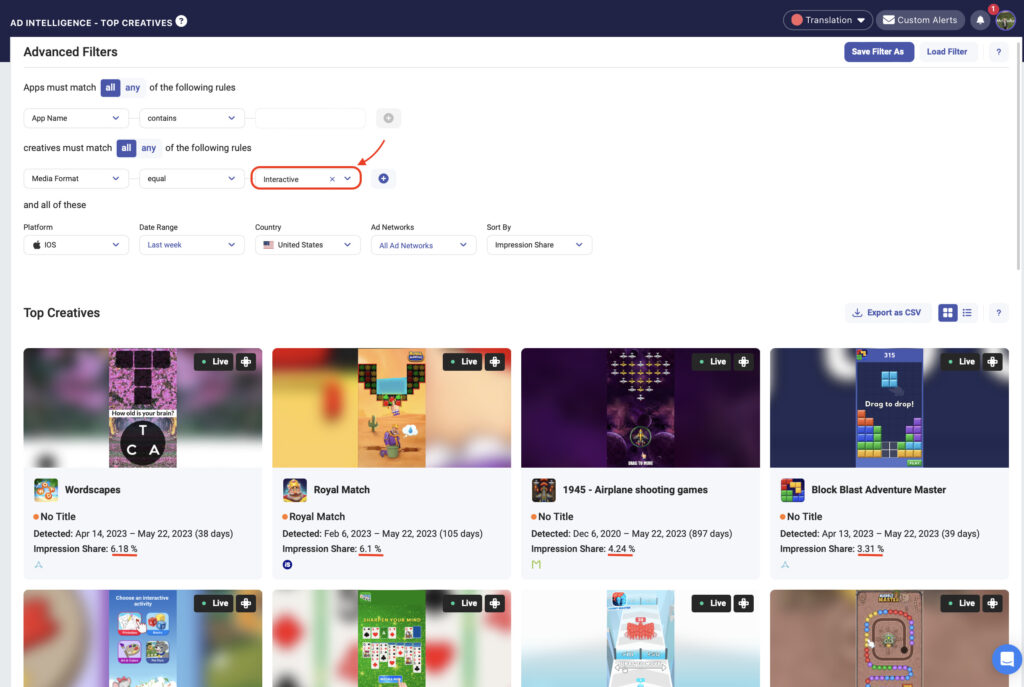
5- Encouraging Social Sharing and Referrals
Integrate social sharing features into your app to take advantage of social media’s power. Allow users to share their accomplishments, content, or experiences with their social networks to promote your app naturally. Incorporate referral programs to encourage users to invite their friends to download the app. Offering incentives or reductions in price in exchange for successful referrals boosts user engagement and broadens your user base.
- Implement social sharing buttons
- Offer incentives or rewards
- Create compelling and shareable content
- Enable in-app referrals
- Incorporate social features
- Personalize sharing messages
- Implement social login
- Leverage social media marketing
- Analyze and iterate
- Optimize app store presence
Get discovered by masses with MobileAction’s tools for ASO, user acquisition and app growth. Our all in one app marketing platform will help you refurbish your ASO strategy & boost organic downloads, gain a competitive edge in growth and localize your app easily for any market. To improve your app store presence with MobileAction, you can easily Sign up for free.
6- Offering Rewards and Incentives
It is a reality that everyone adores incentives and rewards. By implementing a rewards system, you can encourage users to interact with your mobile app more frequently. Offer incentives to users who use the app often, complete tasks, or reach milestones, such as points, savings, exclusive content, or special privileges. These incentives give users a sense of accomplishment and prod them to keep using the app.
7- Providing Excellent Customer Support
Responsive and helpful customer support is essential for businesses to retain customers and foster loyalty. Include easily accessible support channels in the app, like live chat or a unique e-mail for support. Assure quick responses to user questions, comments, or concerns. You show dedication to ensuring user satisfaction and promoting a positive user experience by offering outstanding customer service.
8- Analyzing User Behavior and Iterate
The key to raising user engagement with mobile apps is constant monitoring and analyzing user behavior. Gain insight into user interactions, screen flow, session length, and drop-off points by using analytics tools. Determine trends, patterns, and potential improvement areas. This information will inform your choices and refine the app’s functions, user interface, and user experience.
9- Leveraging User Feedback and Ratings
Users should be encouraged to review and rate your app. Pay attention to their complaints, suggestions, and pointers for improvement. Responding to user feedback shows your dedication to improving the app and fulfilling user expectations. Update the app frequently based on user feedback, inform users about these updates, and demonstrate that their input is valued.
How to improve app ratings?
- Ask your users to rate your app at the right time
- Keep the rating process simple
- Respond to user reviews properly
- Consider negative comments and correct the mistakes. Improving your app should be your first focus
- Release app updates frequently
- Use other channels such as website, social media and e-mails to ask for a review
Maximize App Success with User Feedback and Competitor Insights
Valuing user feedback is vital for app success. User reviews and ratings offer invaluable insights into their experiences, preferences, and needs. By actively listening and responding to their feedback, you can improve your app and deliver an exceptional user experience. Fostering strong connections with your audience enhances engagement and drives app growth. Through MobileAction Dashboard, conveniently reply to your reviews and nurture those important connections.
You can also uncover your competitors’ ratings and reviews, gaining a competitive edge. Understand how your competitors are being rated and what users appreciate about their apps. This knowledge allows you to make adjustments proactively, addressing potential issues before your users even voice their complaints. Analyzing your category users’ preferences helps refine your strategies and enhance your app. With comprehensive insights into your competitors’ performance, make data-driven decisions and seize opportunities to better cater to your users’ needs.
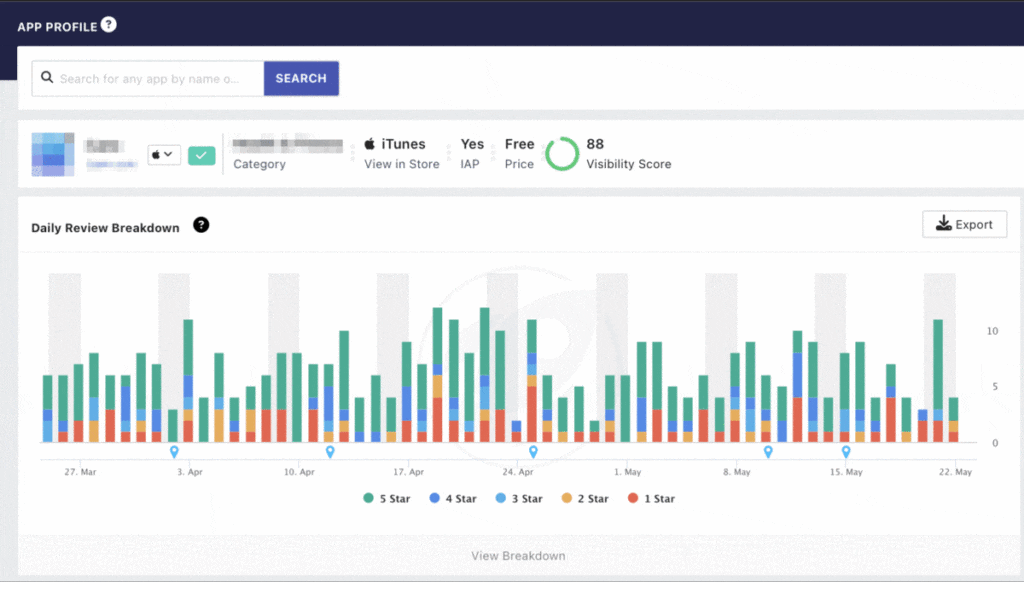
How to Measure Mobile App Engagement
Understanding your strategies’ effectiveness and identifying improvement areas requires measuring and tracking mobile app engagement. You may take advantage of these recommendations to measure user engagement with mobile apps:
1. Key Performance Indicators (KPIs)
For app engagement, it is necessary to consider relevant metrics such as daily active users, session length, retention rate or conversion rate, and in-app purchases. KPIs can also evaluate how well your engagement strategies are working.
2. App Analytics Tools
Use powerful app analytics platforms to track user behavior, demographics, and the conversion funnel. These resources offer insightful information about user engagement trends and aid in tailoring your strategies.
3. A/B Testing
Run A/B tests to compare various iterations of an app’s features, designs, or manifests. By measuring the impact on user interaction, you can determine the most efficient strategy and make data-driven decisions.
4. Segmentation
Segment your user base based on factors such as demographics, behavior, and level of engagement. You can customize engagement strategies and experiences for specific user groups if you analyze these segments separately.
Apps that prioritize localization in their titles, subtitles, and app descriptions have a better chance of resonating with their target audience, ultimately impacting their rankings. By speaking the language of your users and tailoring your app’s content to their preferences, you can enhance user engagement and experience.
With MobileAction’s ASO Intelligence, you have an overview of which ASO elements of an app (title, subtitle and description) have been localized (translated) and how well the app is doing in each active country.
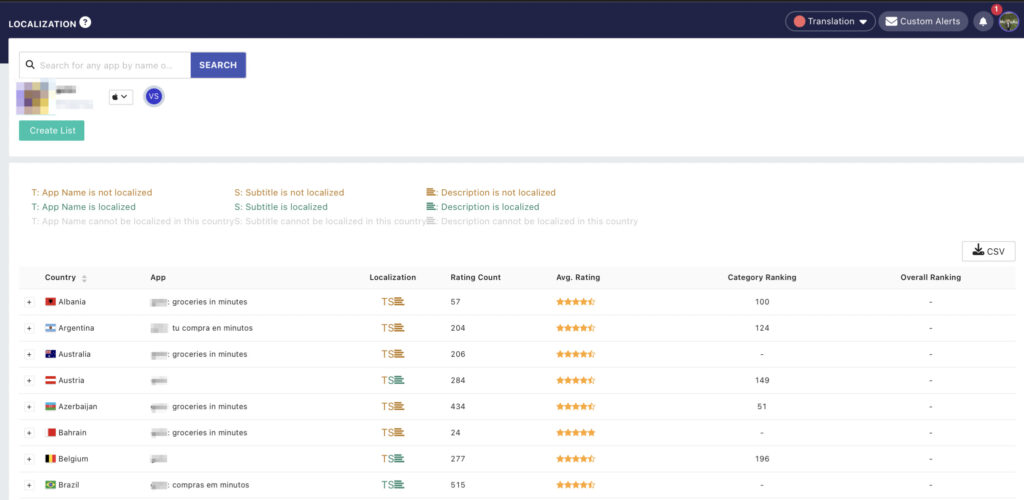
5. Benchmarking
To gain insight into your app’s performance and spot areas for improvement, compare the engagement metrics of your app with industry benchmarks or competitor data.
Recall that tracking user engagement with mobile apps is a continuous process. Keep an eye on and analyze your app’s performance to adjust and improve your engagement strategies.
In Summary
To ensure that users actively use and enjoy the application, it is essential to realize that successful mobile application development requires more than improving it. There are many ways in which mobile app engagement can be significantly increased by analyzing user behavior:
- Optimizing user engagement
- Personalizing experiences
- Implementing push notifications
- Gamifying the app
- Encouraging social sharing
- Providing excellent support by offering rewards
You can use application analytics tools to measure and monitor engagement metrics and iterate based on user feedback. You can develop a successful app with a loyal user base by prioritizing user interaction.
